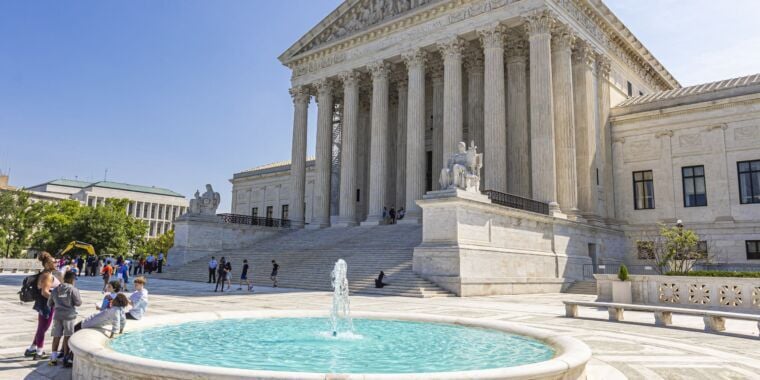- cross-posted to:
- [email protected]
- [email protected]
- cross-posted to:
- [email protected]
- [email protected]
Four more large Internet service providers told the US Supreme Court this week that ISPs shouldn’t be forced to aggressively police copyright infringement on broadband networks.
While the ISPs worry about financial liability from lawsuits filed by major record labels and other copyright holders, they also argue that mass terminations of Internet users accused of piracy “would harm innocent people by depriving households, schools, hospitals, and businesses of Internet access.” The legal question presented by the case “is exceptionally important to the future of the Internet,” they wrote in a brief filed with the Supreme Court on Monday.



That would be a fair point if we were talking about like, small businesses in markets that are well-suited to competition, but that is not mpdern ISPs.
Iirc, much of the backbone of the US’s fiber optic cable network is publicly owned anyway, it’s just the “last mile” that’s privately owned, which is the local lengths of fiber that run through neighborhoods to individual residences. But most of this infrastructure was also heavily subsidized by the state, so the way I see it, ISPs are essentially leaches that extract rent from a system paid for by the people and (directly or indirectly) built by the state. Why should we let them collect profit from a network they didn’t build when we could own the entire network publicly and set monthly rates to break even, rather than generate a profit (which would keep prices very low, as seen in Every Other Country with mainly state/municipally owned ISPs).
If you allow the government to take over any private business, for any reason, they will fabricate reasons to do so. Stalin, and Mao did this. Publicly owned means owned by the people.